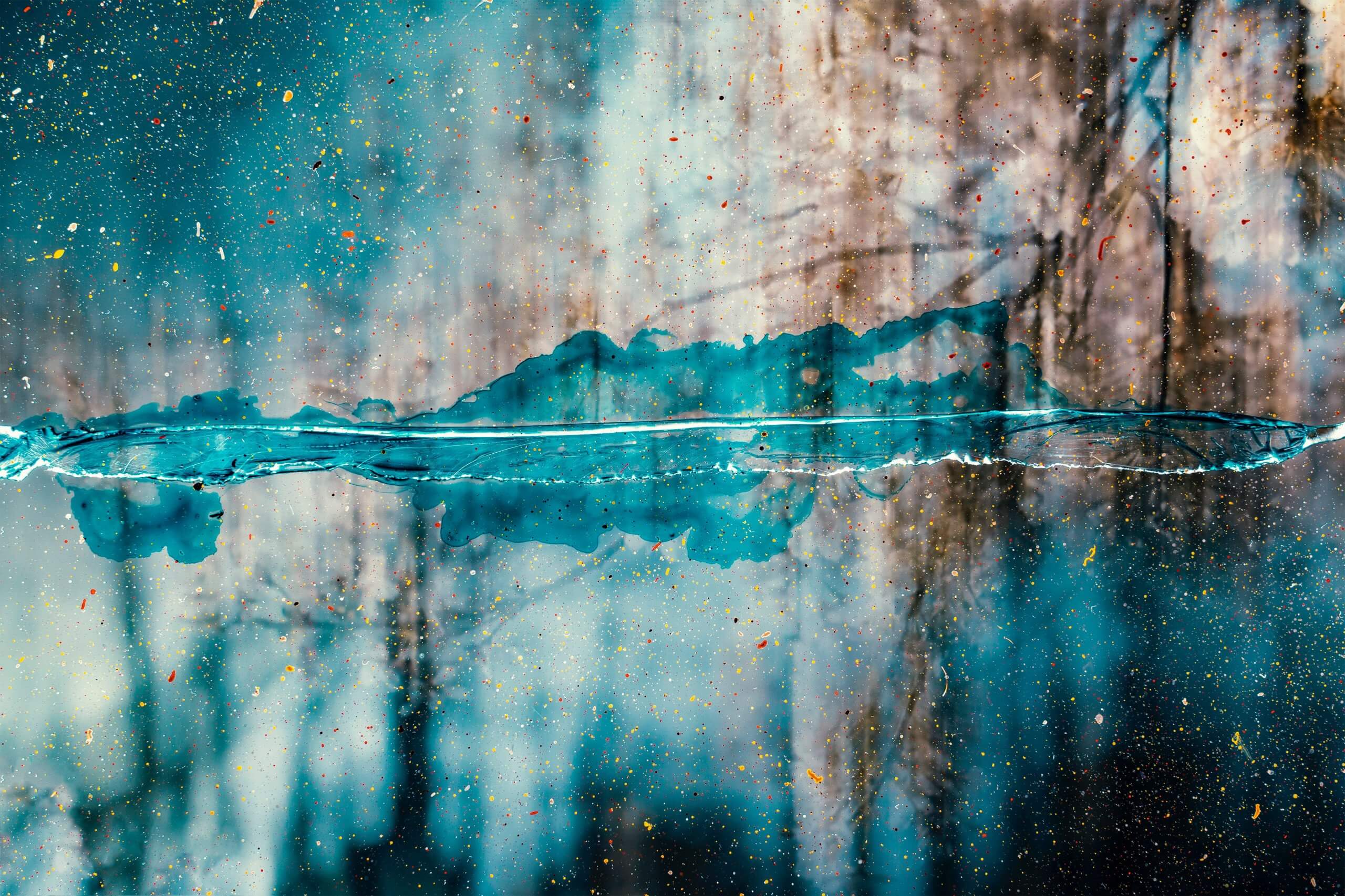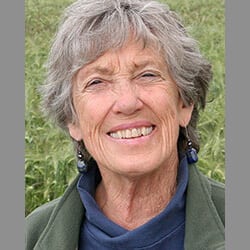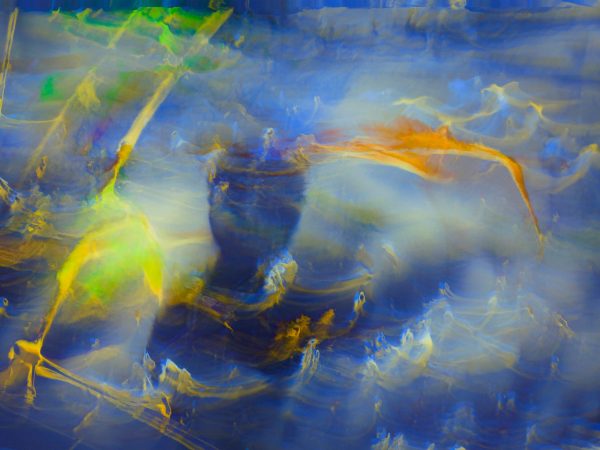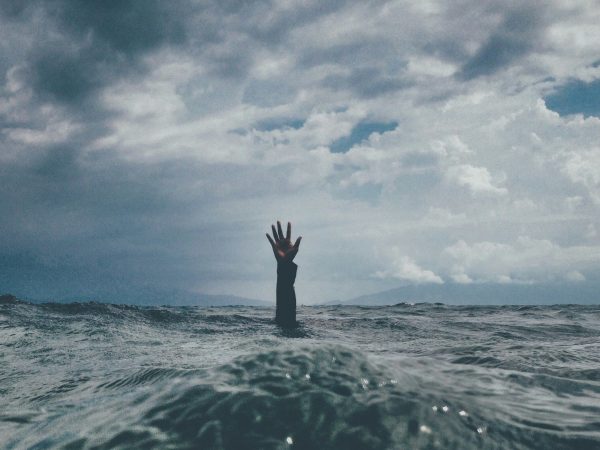This article was originally published by Emergence Magazine and is republished here with permission.
We are in a space without a map. With the likelihood of economic collapse and climate catastrophe looming, it feels like we are on shifting ground, where old habits and old scenarios no longer apply. In Tibetan Buddhism, such a space or gap between known worlds is called a bardo. It is frightening. It is also a place of potential transformation.
As you enter the bardo, there facing you is the Buddha Akshobhya. His element is Water. He is holding a mirror, for his gift is Mirror Wisdom, reflecting everything just as it is. And the teaching of Akshobhya’s mirror is this: Do not look away. Do not avert your gaze. Do not turn aside. This teaching clearly calls for radical attention and total acceptance.
I remember my Tibetan teachers telling me that bodhicitta is like a flame in the heart, and often I can feel it there.
For the last forty years, I’ve been growing a form of experiential group work called the Work That Reconnects. It is a framework for personal and social change in the face of overwhelming crises—a way of transforming despair and apathy into collaborative action. Like the Mirror Wisdom of Akshobhya, the Work That Reconnects helps people tell the truth about what they see and feel is happening to our world. It also helps them find the motivation, tools, and resources for taking part in our collective self-healing.
Three Stories of the World
When we come together for this work, at the outset we discern three stories or versions of reality that are shaping our world so that we can see them more clearly and choose which one we want to get behind. The first narrative we identify is “Business as Usual,” by which we mean the growth economy, or global corporate capitalism. We hear this marching order from virtually every voice in government, publicly traded corporations, the military, and corporate-controlled media.
We’ve been so busy and distracted in our different versions of the rat race that we haven’t been able to pay attention to our actual situation.
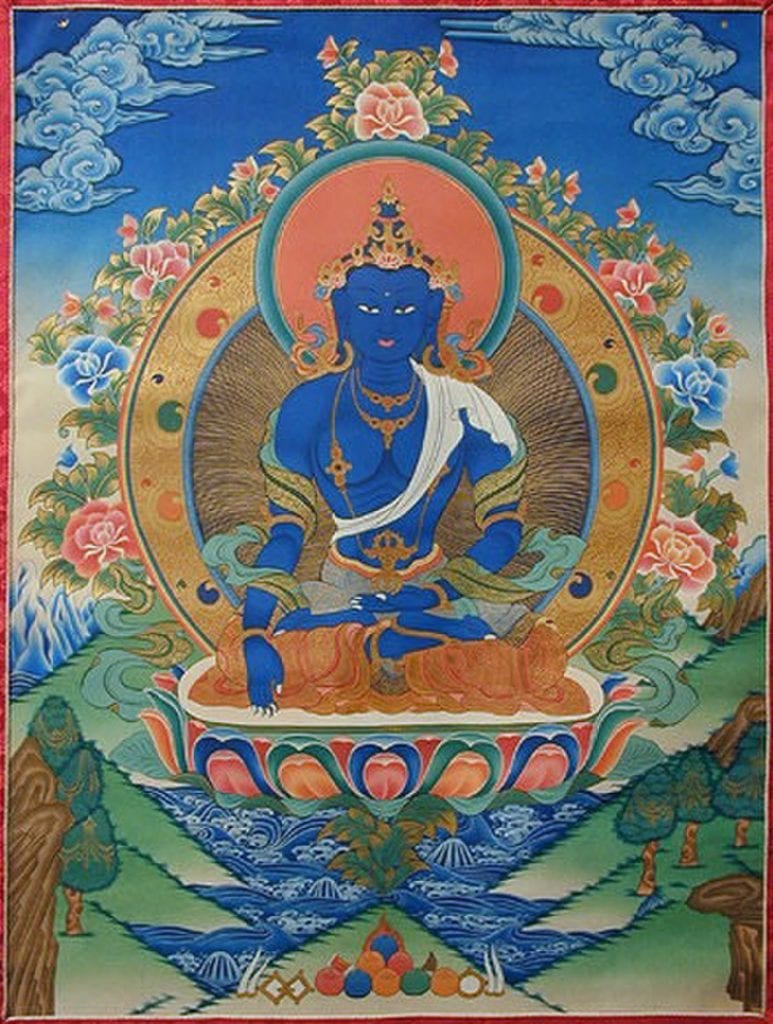
The second is called “The Great Unraveling”: an ongoing collapse of living structures. This is what happens when ecological, biological, and social systems are commodified through an industrial growth society or “business as usual” frame. I like the term “unraveling,” because systems don’t just fall over dead, they fray, progressively losing their coherence, integrity, and memory.
The third story is the central adventure of our time: the transition to a life-sustaining society. The magnitude and scope of this transition—which is well underway when we know where to look—is comparable to the agricultural revolution some ten thousand years ago and the industrial revolution a few centuries back. Contemporary social thinkers have various names for it, such as the ecological or sustainability revolution; in the Work That Reconnects we call it the Great Turning. Simply put, our aim with this process of naming and deep recognition of what is happening to our world is to survive the first two stories and to keep bringing more and more people and resources into the third story. Through this work, we can choose to align with business as usual, the unraveling of living systems, or the creation of a life-sustaining society.
Over the last couple of years, a number of us involved in this work have recognized that, given the pace of the Great Unraveling, we are heading toward economic and, indeed, civilizational collapse. Our thinking was aided by the Deep Adaptation work of Jem Bendell, which seeks to prepare for—and live with—societal breakdown. I’d also like to acknowledge the earlier contributions in French-speaking Europe of Pablo Servigne and Raphael Stevens—whose prescient work focuses on collapse and transition and is only just now coming out in English.
Globally as well as in the US, many of us are discovering a new solidarity in our determination to move beyond the sick racism we’ve inherited.
Since the present world economy has been unable to cut greenhouse gas emissions by even the slightest fraction of a degree, it now seems obvious that we cannot avoid climate catastrophe. Many of us had assumed that the Great Turning could forestall such disintegration, but now we have come to recognize the Great Turning as a process and a commitment to help us survive the breakdown of the industrialized growth economy. The motivation and skills we gain by engaging in the Work That Reconnects provide the guidance, solidarity, and trust needed to make our way through this inevitable breakdown.
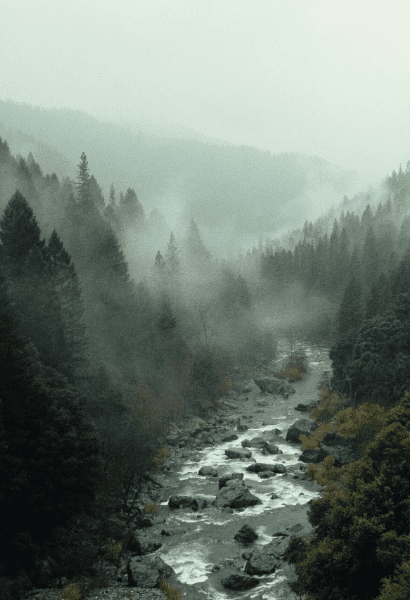
There are many dimensions to this work that address the psychological and spiritual issues of the time, and I have found a fruitful resonance between Buddhist thought and postmodern science: much of the Work That Reconnects has been informed by Buddhist teachings. I now think of the Great Turning as somewhat like bodhicitta, the intention to serve all beings. This is the mind state of the bodhisattva—the being who, in their great compassion, delays nirvana in order to address the world’s suffering. I remember my Tibetan teachers telling me that bodhicitta is like a flame in the heart, and often I can feel it there.
It can seem pretty clear now who is holding up Akshobhya’s mirror—it is COVID-19. The coronavirus has come upon us fast. We knew nothing of it just a short while ago. First it made us pause so we could take in what the mirror is reflecting. We’ve been so busy and distracted in our different versions of the rat race that we haven’t been able to pay attention to our actual situation. We had to cease our rushing about in order to see who, what, and where we are.
A Great Unveiling
COVID-19 reminds us that apocalypse—in its ancient meaning—connotes revelation and unveiling. And what has it unveiled? A pandemic so contagious that it immediately revealed our failed health care system and our utter interdependence. The need to prioritize the collective nature of our well-being dramatically rose to the surface, especially within our country, which is the most hyper-individualized country in the world. As Malcolm X put it, “When we change the ‘I’ for the ‘We,’ even Illness becomes Wellness.”
The patterns of contagion then cast a spotlight on what we most need to see: nursing homes, where old people are warehoused; the meatpacking industry, so dangerous to the crowded workers, so cruel to the animals, so costly to the climate; prisons, where millions are locked away, now becoming petri dishes of contamination; the fault lines of racial inequality in our society, now laid bare in the pandemic’s disproportionate impacts on Black, Brown, and Indigenous communities. Sixty percent of the cases are African-American—thanks to pre-existing conditions fostered by inequities in health care and environmental racism.
The bardo represents a place where the unknown, even the inconceivable, can happen and where we who enter are profoundly changed.
On top of that, the killing of George Floyd has not only revealed the racism and brutality of our police culture, but aroused unparalleled protests, sweeping the country and calling for the defunding and even abolition of police departments and unions.
Globally as well as in the US, many of us are discovering a new solidarity in our determination to move beyond the sick racism we’ve inherited. In this Uprising, I am inspired by the courage, creativity, and perseverance of those engaging in public demonstrations, who are influencing many civil servants to take action—members of city councils, agencies, and even police departments. It is no wonder that the bardo represents a place where the unknown, even the inconceivable, can happen and where we who enter are profoundly changed.
When we dare to face the cruel social and ecological realities we have been accustomed to, courage is born and powers within us are liberated to reimagine and even, perhaps one day, rebuild a world.
Do not look away. Do not avert your gaze. Do not turn aside.
Upaya Zen Center’s daylong program on June 21, AWAKENED ACTION: Women Leaders Speak to Race, Poverty, Climate, and the Pandemic featured a talk by Joanna speaking to these themes. We invite you to explore and support the full set of talks and resources here.
